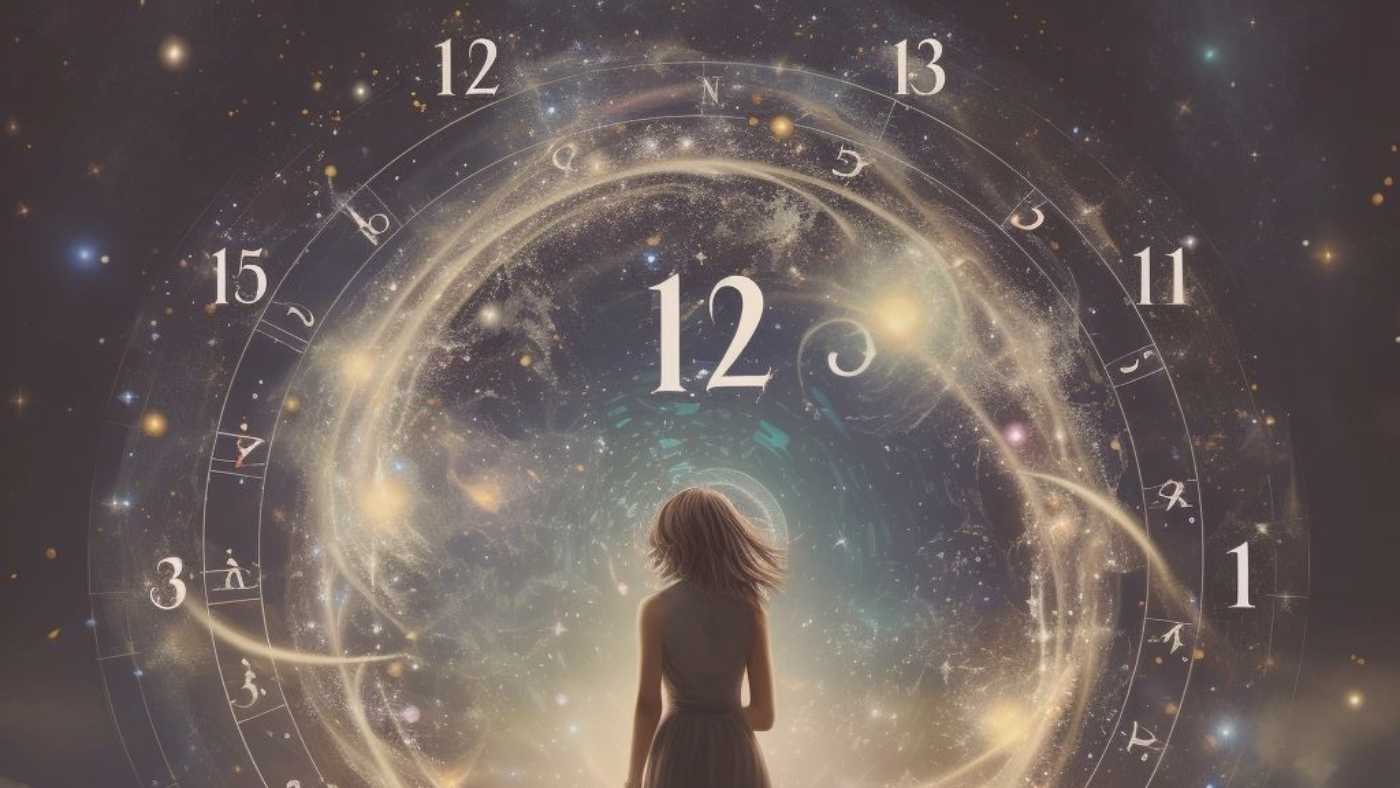The mystical realm of numerology lies in the vast expanse of the universe, where the stars whisper ancient secrets and the moon hums enigmatic tunes. This enchanting world, where numbers are not mere symbols but keys to unlocking the deepest mysteries of existence, invites you on a journey unlike any other. Here, each number dances with cosmic energy, weaving a tapestry of fate, destiny, and hidden truths. The Different Systems of Numerology will tell you a story of how this practice evolved from different places at different times.
As we embark on this magical exploration, numerology beckons us to delve into the esoteric significance of numbers. It’s an ancient art, as timeless as the universe itself, where numbers are seen as the fundamental language of the cosmos. Through numerology, we decode the celestial language, revealing insights into our inner selves, unearthing pathways to our life’s purpose, and gazing into the future with a newfound clarity. Welcome to the magical world of numerology, where numbers are the guideposts on the path to self-discovery and universal wisdom.
What is Numerology?
Numerology is an ancient metaphysical science that interprets the significance of numbers and their influence on human life and the cosmos. Based on the belief that the universe operates on mathematical principles, numerology seeks to decode this universal language and offer insights into the hidden connections between numbers and our existence.
At its core, numerology revolves around the idea that each number holds specific vibrational properties that resonate with cosmic energies. These vibrations influence various aspects of life, from personality traits to life paths and even the outcomes of various events. By analyzing numbers, especially those derived from birth dates and names, numerology aims to reveal deeper psychological traits, forecast potential future scenarios, and offer guidance for life’s decisions.
Numerology is more than just a predictive tool; it’s a bridge between the tangible and the intangible. It connects the mathematical precision of numbers with the esoteric and spiritual dimensions of human experience. This unique blend of science and mysticism makes numerology a compelling practice for those seeking understanding and self-awareness.
Key Components of Numerology
Numerology offers a unique perspective on life’s mysteries, providing valuable insights into personal characteristics and life’s journey. It’s a tool for self-discovery and understanding, a way to navigate the complexities of life with a deeper awareness of the underlying patterns and rhythms of the universe. Here are some of its key components.
- Life Path Number: Perhaps the most significant number in a person’s numerological chart, it is derived from the birth date. This number acts as a guide to one’s life purpose, natural tendencies, and the challenges and opportunities that might arise.
- Expression Number: Based on the full birth name, this number highlights personal skills, abilities, and potential areas for development. It’s seen as a roadmap to understanding one’s true self.
- Soul Urge Number: Also known as the Heart’s Desire Number, it reveals inner cravings, likes, dislikes, and motivations. It helps in understanding the deeper emotional and spiritual aspects of a person.
- Destiny Number: This number, derived from the full name at birth, represents the inherent destiny or life’s mission that one is meant to fulfill.
- Personality Number: Extracted from the consonants of one’s name, this number reflects how others perceive you. It’s the outward face you show to the world.
Different Systems of Numerology
Numerology, an ancient and mystical art, interprets the significance of numbers in understanding human life and the universe. Across cultures and eras, several different systems of numerology have developed, each offering unique perspectives. Moroever, this article explores these various systems, delving into their origins, methodologies, and cultural impacts.
Chaldean Numerology: Vibrations of Ancient Babylon
Chaldean Numerology, originating from Ancient Babylonia, is one of the oldest numerology systems known. It emphasizes the vibrations of numbers and their energetic influence. Unlike other systems, it assigns values to letters based on their sound frequencies rather than sequential order. This system is highly regarded for its depth and accuracy, particularly in interpreting personal names and their mystical meanings.
Kabbalah Numerology: Hebrew Mystical Insights
Kabbalah Numerology, derived from Hebrew mysticism, focuses on understanding the inner self and spiritual growth. In this system, numbers are assigned to letters of the Hebrew alphabet. It’s used to interpret the deeper, often hidden meanings within words and names, offering insights into personal characteristics and life paths. Additionally, this numerological approach is integral to Jewish mystical traditions and has influenced various spiritual practices.
Tamil (Indian) Numerology: Vedic Wisdom
Tamil numerology, also known as Indian or Vedic numerology, is deeply rooted in India’s astrological traditions. It integrates the principles of Vedic astrology, associating numbers with planets and their cosmic energies. This system analyzes and predicts individual personality traits, life events, and compatibility in relationships. It’s one of the oldest and most respected forms in Eastern traditions.
Western/Pythagorean Numerology: Greek Philosophical Legacy
Developed by the Greek philosopher Pythagoras, Western or Pythagorean Numerology is widely used in the Western world. Pythagoras believed that the universe could be understood through numbers and their relationships. This system assigns numerical values to letters of the Latin alphabet and uses mathematical calculations to interpret personality traits, life paths, and future trends. Its simplicity and practical approach have made it popular in contemporary numerological practices.
New Kabbalah and Abracadabra Numerology
These are variations of the traditional Kabbalah system. New Kabbalah Numerology adapts ancient wisdom for contemporary understanding, while Abracadabra Numerology, less common, involves creating specific numerical patterns. Both systems maintain a mystical approach, focusing on spiritual insights and self-discovery.
Chinese Numerology: Harmony and Fortune
Chinese Numerology, a complex system especially Western, Traditional, and Ki numerology, originated some 4000 years ago. Moreover, it uses numerical grids to analyze birth dates and determine personality traits and life events. This system is deeply embedded in Chinese culture, with particular emphasis on the auspiciousness of numbers in everyday life, from business decisions to personal milestones.
Other sources
Other sources also mention additional different systems of numerology, such as:
- New Kabbalah and Abracadabra Numerology are variations of the Kabbalah system.
- Chinese Numerology, which includes Western, Traditional, and Ki numerology, focuses on analyzing an individual’s birth date to determine personality traits and life events.
- Pythagorean Numerology, is similar to Western numerology and focuses on understanding the harmony in relationships.
Embracing the Infinite Wisdom of Numbers
In our journey through the realms of numerology, we’ve seen how this ancient practice intertwines the mystical with the practical, offering insightful tools for self-discovery and guidance. It stands out not just as a method of divination but as a profound means to understand our intrinsic traits and life’s trajectory. Numerology, rich in historical and cultural depth, continues to hold relevance in today’s world, helping individuals decipher life’s complexities through the universal language of numbers.
Platforms like TarotPH, known for their tarot reading services, reflect the modern-day appetite for such wisdom-seeking tools. They highlight our collective pursuit for deeper insights and paths to self-realization. Similarly, numerology addresses this quest by interpreting the significance of numbers in our lives. It goes beyond mere fortune-telling, offering a unique lens to view our strengths, challenges, and potential, thus equipping us to navigate life’s uncertainties with greater awareness and confidence.





